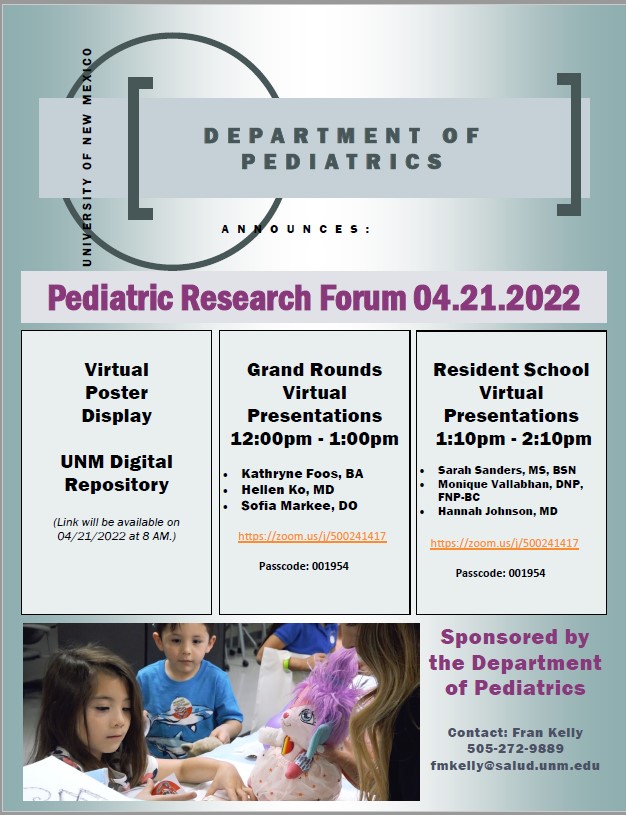
2022 Pediatric Research Forum Session
Document Type
Poster
Publication Date
4-21-2022
Abstract
Background: Pediatric patients with thromboembolic events (TEEs) often undergo testing for inherited thrombophilia disorders,1 including anti-thrombin III deficiency, Factor V Leiden mutation, prothrombin 20210 mutation, protein C deficiency, and protein S deficiency. While some data suggests testing for these disorders in all pediatric patients with a confirmed thrombosis,2 there is increasing evidence that this often does not result in meaningful changes in management1,3,4 and may not be cost effective.1 Another group suggests a stepwise testing algorithm to optimize diagnosis while preventing excessive testing.5 Our study will evaluate the rate of testing that results in diagnosis and management changes and explore the timing of these changes.
Methods: Data will be collected in REDCap from ten-year retrospective chart review of pediatric patients ≥1 year to < 18 years old at University of New Mexico Children’s Hospital without previous diagnosis of an inherited thrombophilia disorder who underwent laboratory analysis to screen for such disorders during inpatient hospitalization from 2/1/2011 – 1/31/2021.
Data collected will include demographics, thrombophilia risk factors, preceding thromboembolic event type and site, documented family history of thrombophilia-related diagnoses, laboratory testing performed for inherited thrombophilia disorders and results, changes in management including initiation of anti-coagulation, change in duration of anti-coagulation, and length of time from diagnosis to these changes. Statistical analysis will be performed to achieve our objectives. The primary outcome is to determine the percentage of pediatric patients for whom laboratory analysis screening confirmed a diagnosis of an inherited thrombophilia disorder. The secondary outcomes explore how testing may impact choice of anticoagulant or duration of treatment and when these changes are implemented as a marker of whether it is most appropriate to undergo testing in the acute inpatient setting or upon outpatient follow-up. Results: In the process of obtaining. Conclusion: In the process of obtaining.
Recommended Citation
Dolan, Ella; Jason Koury; and Shirley Abraham. "Utility of laboratory screening for inherited thrombophilia in the acute setting for hospitalized pediatric patients." (2022). https://digitalrepository.unm.edu/hsc_2022_pediatric_research/6


